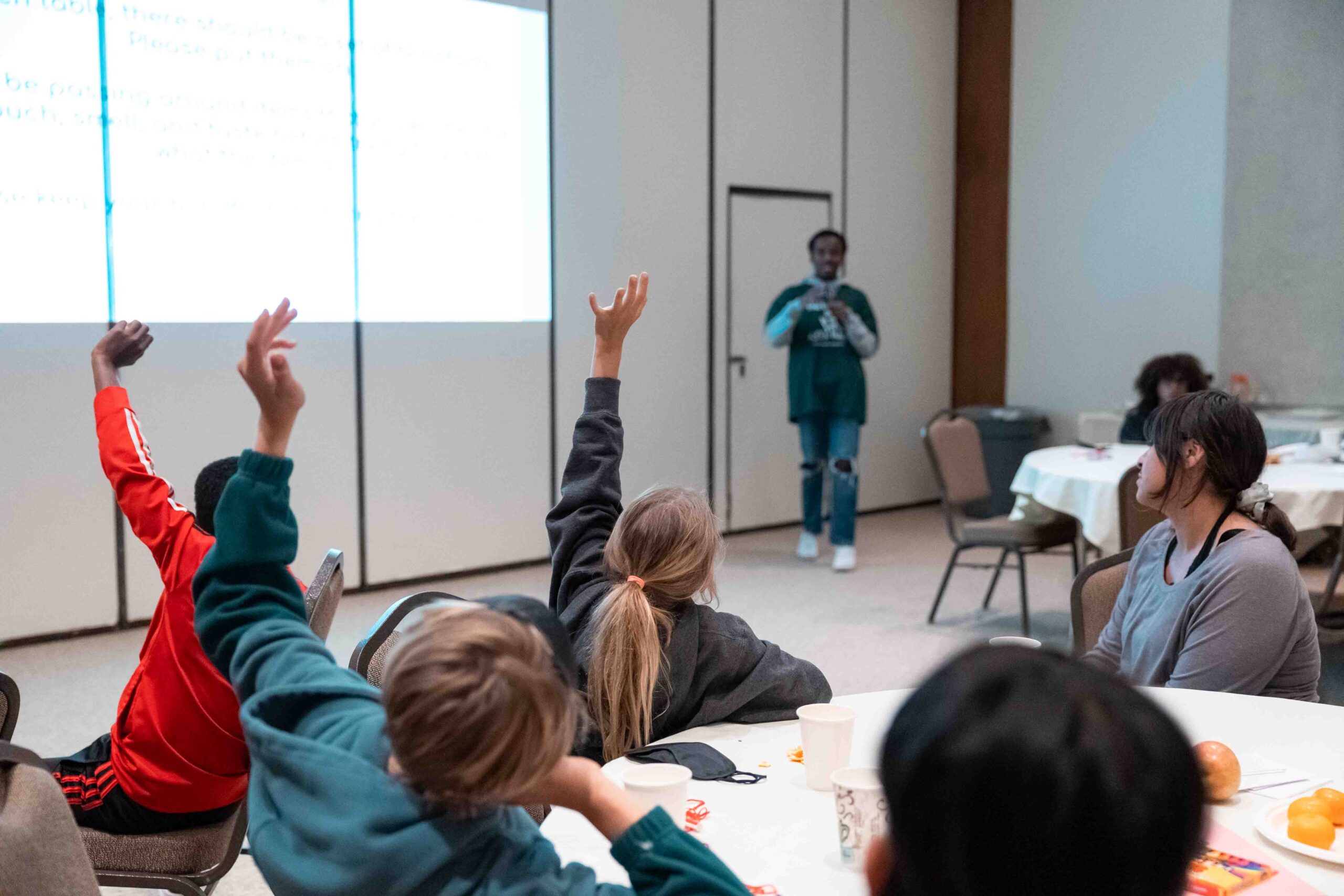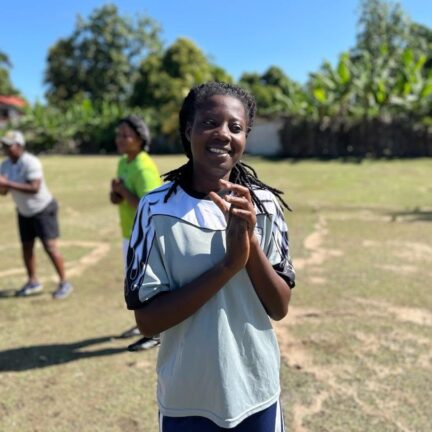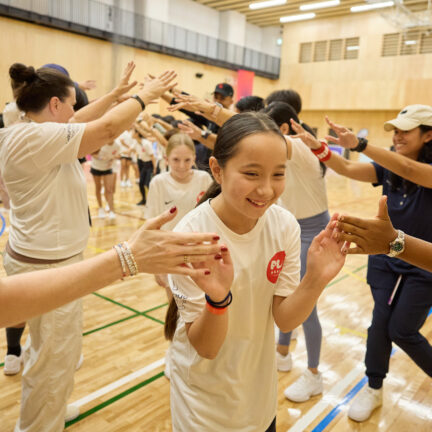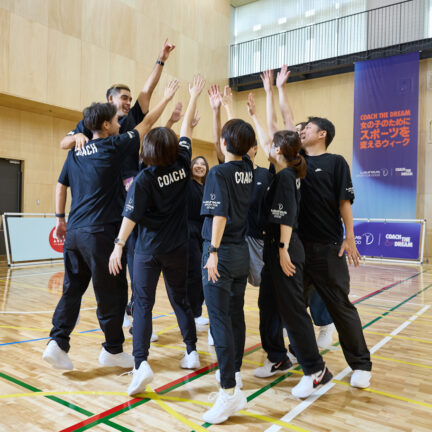Kids Enjoy Exercise Now Los Angeles (KEEN LA) had a need, and Pete Brown Jr. Tennis Program (PBJTP) stepped in to help.
Their collaboration, along with support from Sinai Temple helped bring to life KEEN LA’s first Junior Coach Training on Autism on Sunday (April 14). The pilot training took six months of planning but was an idea brewing for almost two years.
“One issue that motivated us was that the percentage of kids with disabilities who get bullied in school is off the charts,” KEEN LA Executive Director Suzanne Phillips said.
“Kids are inherently good. Often times, they just don’t understand, and you tend to be afraid of what you don’t understand. So we wanted to try and teach kids to understand and learn compassion for kids with disabilities, especially with disabilities that aren’t visible like autism.”
KEEN LA offers free, non-competitive, one-on-one programming for young people with a disability, and the organization has been fueled by its army of volunteer coaches who usually range from college or post-grad students to young professionals. Phillips explained how a lot of parents would reach out, asking if their child can volunteer, normally for community service requirements or college applications. While she could use the support, Phillips felt it important for them to undergo a training.
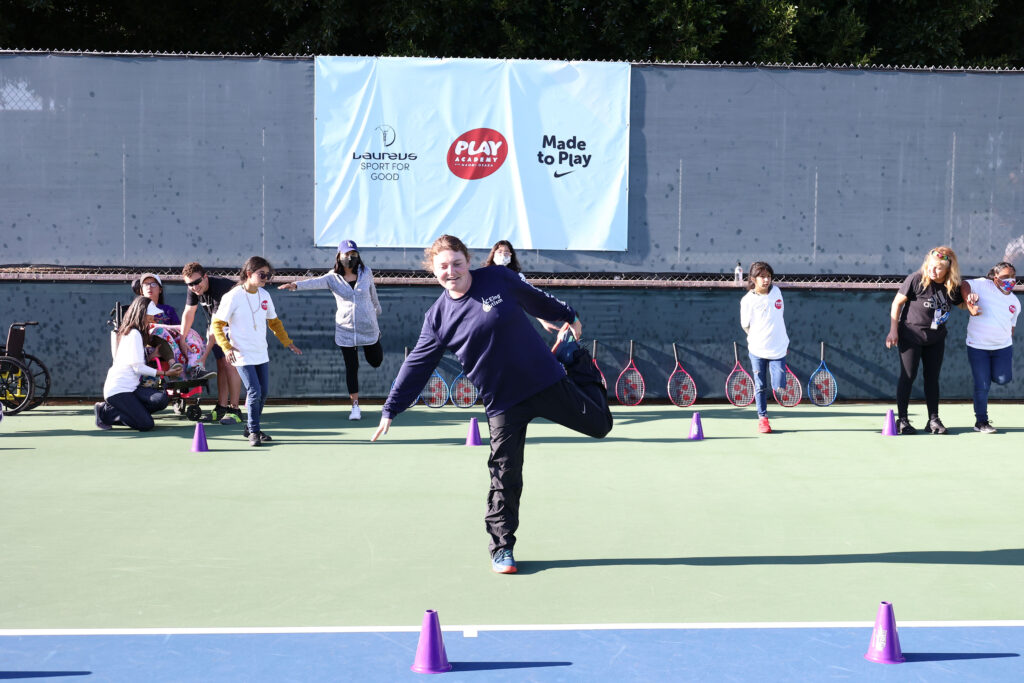
“We felt like it would be a good decision for us to provide a training for these youth who want to work with our kids with disabilities to help them have a better understanding of the type of scenarios they may come across,” Phillips said. “You have to create an environment where everyone is comfortable, both for the coaches and the participants.”
The challenge was finding time and resources to organize a training, on top of KEEN’s normal programming. Phillips asked one of her volunteer coaches Cameron Gill, a graduate student at UCLA and KEEN coach, to help develop and deliver the training content.
A Master’s student in physiological science, Gill began volunteering at KEEN in December 2022 to complement his thesis research on autism. Leading the training was right up his alley.
“I felt it was important to educate youth, teenagers and middle school students because of the fact that more often than not, when kids don’t understand something or when it’s unusual, they may distance themselves, they may not interact with kids with a disability,” Gill said. “Or they may even bully, pester or mock them. Kids who have different complexities in terms of their neurological status are more susceptible to those things.”
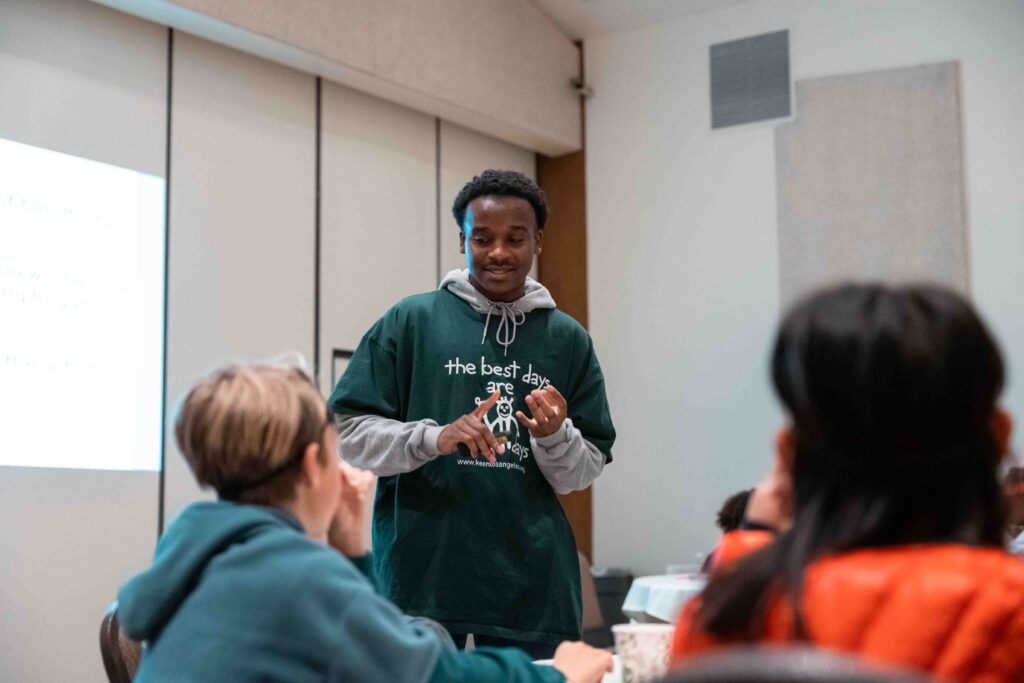
Another major challenge was finding participants to attend the training.
Phillips didn’t get the commitments she had hoped from the parents who reached out. But she recalled a conversation she had with Marty Woods, Executive Director of Pete Brown Jr. Tennis Program.
During a coaches training hosted by Play Academy with Naomi Osaka in 2022, Phillips and Woods socialized the idea of having PBJTP youth volunteer at one of KEEN’s tennis sessions. The partnership seed was planted. Earlier this year, Phillips went back to Woods and asked if his youth would be interested in the training.
Without hesitation, he said yes and got to work.
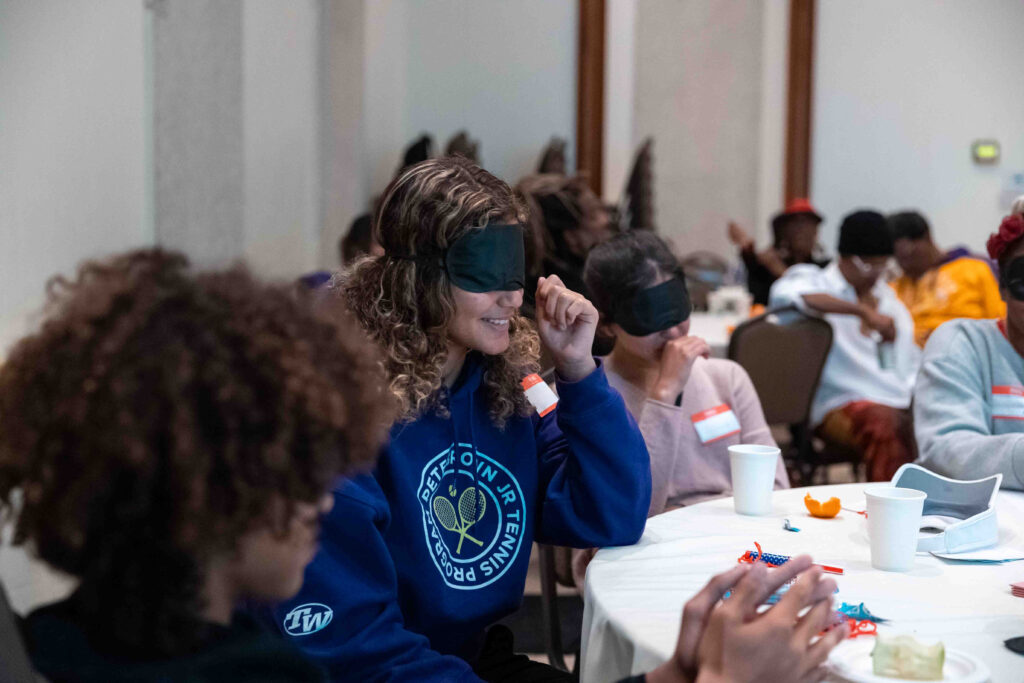
“We want to have equity for everyone who comes to play on the courts, and so it’s important for us to know how to interact, how to treat, how to have a relationship with people with a disability,” Woods said. “Los Angeles is in a good spot leading up to the 2028 Paralympics. There are already Paralympic activities at Harvard Park where we have our programming. So this training gave our kids the opportunity to learn from KEEN on how to interact with kids with autism, and how to make it comfortable for them so that they keep wanting to come and play.”
Around 20 youth from PBJT and Sinai Temple attended the training. Gill walked attendees through first understanding autism followed by interactive workshops.
“Seeing how excited and engaged the youth were at the workshop really showed me that there is a willingness in the community to learn about autism and support people who have autism or other intellectual disorders,” Gill said.
